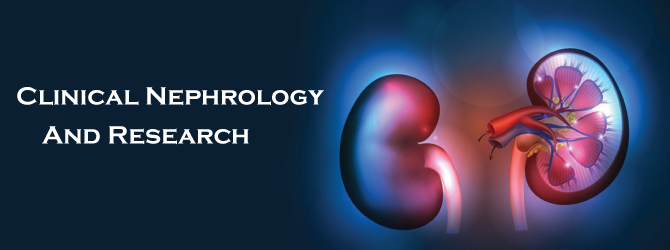
Sign up for email alert when new content gets added: Sign up
Joseph McDaniels
Medical College of Georgia at Augusta University, USA
Posters & Accepted Abstracts: Clin Nephrol Res
Statement of the Problem: Radical prostatectomy, the mainstay of surgical treatment for men with localized prostate cancer, is associated with high rates of postoperative urinary incontinence. Men who have undergone prostatectomy and experience postoperative stress urinary incontinence (SUI) may be at a higher risk of depression and suicide. The objective of this study is to review existing literature to investigate the relationship between depression, suicidality, and SUI in men to allow clinicians to identify at-risk patients and to provide education and mental health resources to reduce the risk of incontinence-associated depression and suicide. Methodology and Theoretical Orientation: We reviewed current literature pertaining to SUI in males and depression, suicide, and quality of life. Findings: Men with urinary incontinence are at an increased risk for depression (14.9% versus 8.4%, p<0.001) and anxiety (26.6% versus 18%, p<0.001) compared to age-matched controls. Additionally, men who report features of both SUI and urge urinary incontinence (UUI) were more likely to screen positive for depression (42.1% versus 12.7, p<0.001) and anxiety (47.2% versus 12.7%, p<0.001) than men with only SUI. These trends remain consistent when looking specifically at men postprostatectomy. Men post-prostatectomy with moderate to severe lower urinary tract symptoms (LUTS) reported higher rates of mental distress than males with no or minimal symptoms (OR 4.79, 95% CI [1.04, 22.03]). Conclusion & Significance: Few studies have been performed to assess the effects of incontinence on mental health in men. The studies found in this review indicate poor mental health outcomes in males with SUI alone or with SUI plus other LUTS. Only two studies were found to assess SUI/LUTS and mental health outcomes specifically in men post-prostatectomy. Clinicians should be aware of the toll that incontinence can take on the mental health of their patients and should screen and counsel accordingly. Recent publications 1. Coyne KS, Sexton CC, Thompson CL, et al. The prevalence of lower urinary tract symptoms (LUTS) in the USA, the UK and Sweden: results from the Epidemiology of LUTS (EpiLUTS) study. BJU Int. 2009;104(3):352-360 2. Hampson LA, Suskind AM, Breyer BN, et al. Understanding the Health Characteristics and Treatment Choices of Older Men with Stress Urinary Incontinence. Urology. 2021;154:281-287. 3. Sims J, Browning C, Lundgren-Lindquist B, Kendig H. Urinary incontinence in a community sample of older adults: prevalence and impact on quality of life. Disabil Rehabil. 2011;33(15-16):1389-1398.
Joseph McDaniels is a medical student interested in translational research in urology. He has a passion for improving health outcomes for surgical patients across cultural and socioeconomic backgrounds. His current interests are primarily in identifying and addressing health disparities in patients diagnosed with urological malignancies and in addressing social and mental health after surgery. His ongoing research involves analysis of several outcome parameters after bladder cancer treatment in a largely African-American population as well as research in depression and suicidality of patients diagnosed with bladder and prostate cancer.